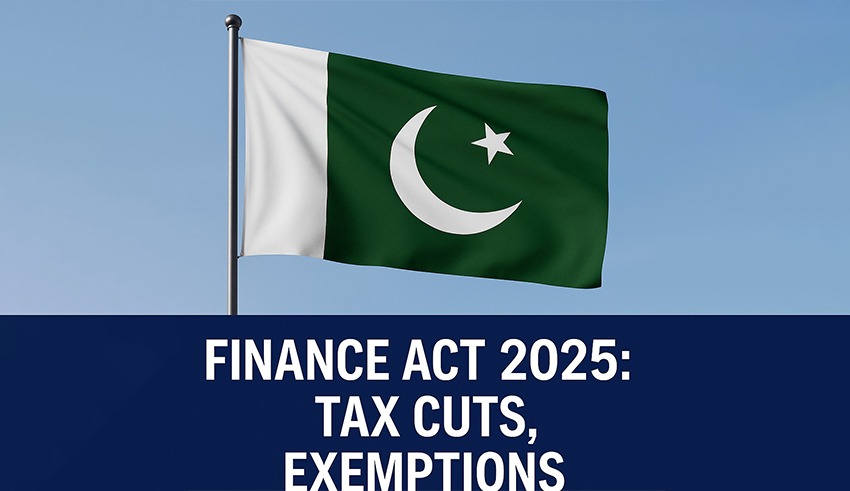Pakistan’s Finance Act 2025: Tax Cuts for Businesses, Exemptions for Elites
Pakistan’s latest Finance Act 2025 brings major changes. While it aims to support industries with lower import taxes, it extends tax exemptions for the powerful — despite the fragile economy.
Zero Tariffs on Raw Materials and Goods
The government says the Finance Act’s goal is to create a business-friendly import environment. It plans to reduce import taxes on key raw materials and intermediate goods.
Zero tariffs on 2,201 tariff lines will now apply to an extra 916 lines. Customs codes will be reduced on 2,624 PTC codes.
Phasing out import taxes has long been demanded by global lenders. This move is unlikely to face resistance from the International Monetary Fund (IMF). IMF support is crucial for Pakistan’s ongoing Extended Fund Facility (EFF) programme.
Revenue Shortfall and Risk of New Taxes
The plan sounds promising. But officials have not explained how much these cuts will cost the national exchequer.
A revenue shortfall is likely. Many expect a “mini-budget” later in the year to make up for lost tax revenue. The IMF’s EFF deal requires Pakistan to stick to revenue targets.
Both the Finance Minister and the FBR Chairman have warned that if the 389 billion rupees set aside for enforcement measures fall short, more taxes will be needed. Estimates range from 400 to 600 billion rupees in new taxes.
Why the Investment Climate Needs Support
Pakistan’s large-scale manufacturing (LSM) sector is struggling. From July to March 2024-25, it posted negative growth of -1.47 percent. The previous year saw negative growth of -0.92 percent.
This decline persists despite policy support. The discount rate dropped from 22 percent to 11 percent. Electricity tariffs fell too, but new taxes on captive power plants — another IMF condition — add fresh costs.
Meanwhile, the FBR’s enhanced powers, only slightly watered down by parliament, may hit industrial productivity further.
Long History of Monetary and Fiscal Incentives
Successive Pakistani governments have used fiscal and monetary incentives to push growth. But the IMF’s October 2024 documents highlight a key problem:
The state’s control over prices — from farm goods to fuel and power — along with high tariffs and non-tariff barriers, has favoured select sectors.
Despite this support, the business sector has failed to become a strong engine of growth. Instead, it has trapped resources in inefficient industries and weakened fair competition.
Tax Exemptions: Rewarding the Rich?
While import duties are being cut, 50 tax exemptions have been extended. This is raising eyebrows.
Multilateral lenders strongly oppose such exemptions. They mainly benefit the rich and powerful. An example is the pension exemption for Pakistani presidents. It is hard to justify when the economy remains shaky and debt-dependent.
Reliance on Indirect Taxes Continues
The biggest disappointment in Budget 2025-26 is the lack of real tax reform.
Pakistan still relies heavily on indirect taxes. These hit the poor harder than the rich but are easy to collect. Direct taxes — based on income and ability to pay — remain weak.
Most “direct taxes” are actually withholding taxes collected like sales tax. They now make up 75% of total tax collection.
The Bottom Line
Pakistan’s Finance Act 2025 has positive steps for businesses. But the cost could be higher taxes later. And the protection of exemptions for the elite, without fixing the regressive tax structure, means the poor may bear the burden again.

